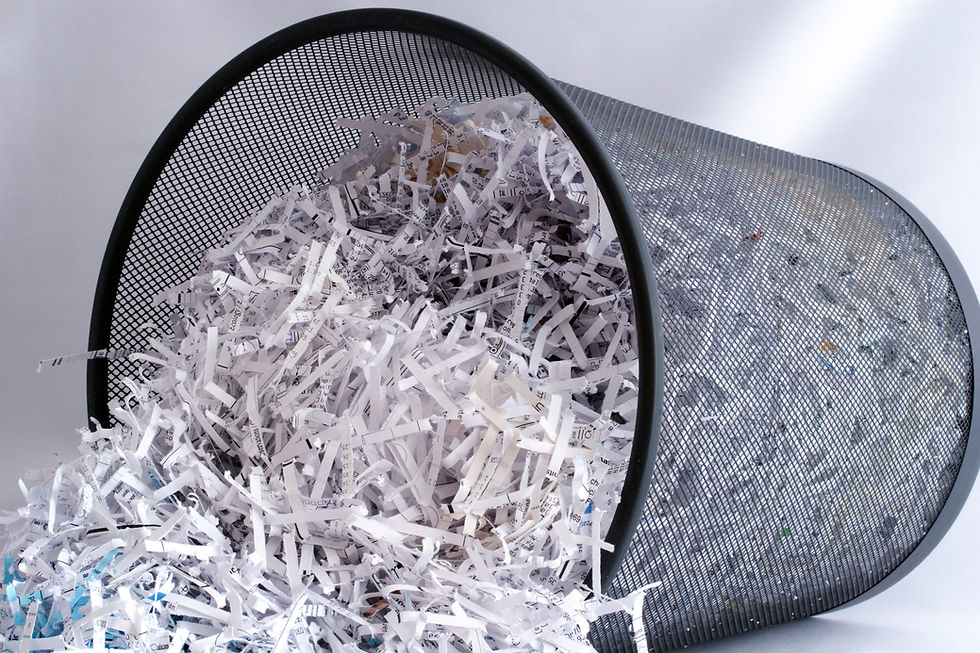Year-End Financial Records: What to Keep, What to Toss, and Why It Matters
- Sep 29, 2025
- 2 min read
As another year winds down, many small business owners face the dreaded task of organizing their financial records. But before you start tossing receipts and other business documents into the trash, you should know what to keep and for how long.

The Golden Rule: When in Doubt, Keep It
The IRS generally has three years to audit your tax return, but this extends to six years if you've underreported income by more than 25%. For most small businesses, keeping tax-related records for s/even years provides a comfortable safety margin. However, some documents deserve permanent filing cabinet real estate.
Keep Forever
Corporate formation documents like articles of incorporation, partnership agreements, and operating agreements should never be discarded. These foundational documents prove your business exists and outline ownership structures that may be crucial decades later.
Property records including deeds, major improvement receipts, and depreciation schedules must be kept for as long as you own the property, plus seven years after sale. That seemingly minor office renovation from 2019 could significantly impact your tax liability when you eventually sell.
The Seven-Year Rule
Most financial records fall into this category. Keep tax returns and supporting documentation, including receipts for business expenses, bank statements, payroll records, and 1099s. Employee records for terminated workers, including I-9 forms, should be retained for three years after termination or one year after hire date, whichever is longer.
Contract-related documents should be kept for seven years after the contract expires, not when it's signed. That vendor agreement from 2020 that just expired? Keep it until 2031.
Insurance policies should be kept for seven years after expiration, as claims can sometimes be filed years later.
Loan documents need to be kept for seven years after final payment, along with any related correspondence.
Three Years and Out
General correspondence and routine business communications can typically be discarded after three years, unless they relate to tax matters or ongoing legal issues. Routine bank deposits and canceled checks for non-tax-deductible expenses can also go after three years.
Special Considerations
For employment tax records, the rules are stricter. Keep these for at least four years after the due date or payment date, whichever is later.
North Carolina Considerations
While North Carolina generally follows federal guidelines for private business records, there are a few state-specific points to remember. If your business contracts with any North Carolina government entities, those records may be subject to the state's Public Records Act requirements. Additionally, any business license or professional license documentation should be kept permanently, as North Carolina agencies may request historical information during renewal processes.
Going Digital
Consider scanning important documents and storing them securely in the cloud. This creates backups while reducing physical storage needs. Just ensure your digital storage system is reliable and accessible.
Good record-keeping isn't just about compliance—it's about protecting your business. When that insurance claim arises or the IRS comes knocking, having organized, complete records can mean the difference between a minor inconvenience and a major crisis.
Take time this month to organize your records properly.











Comments